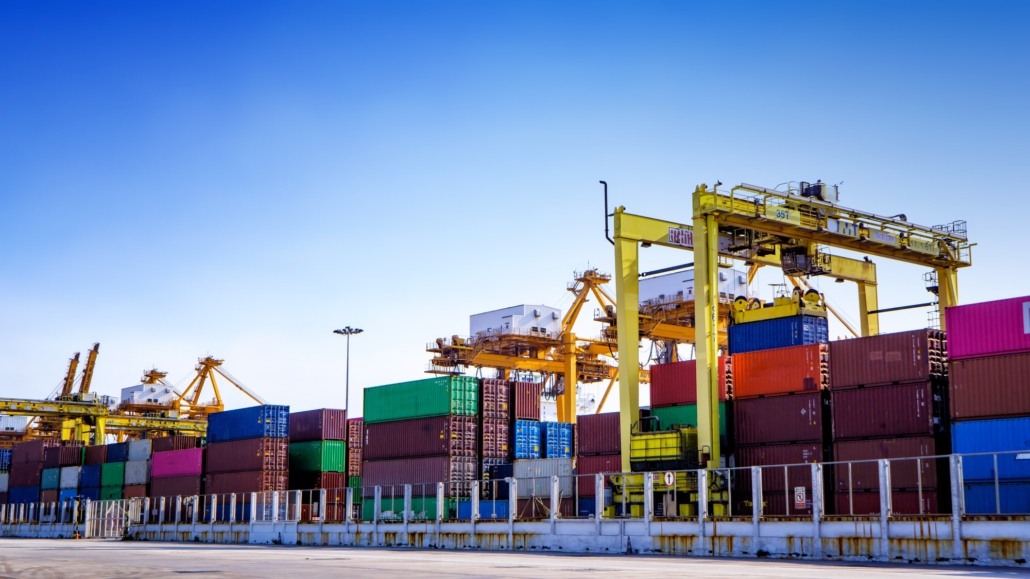LEGAL+ NEWS
The legal position of so-called handling agents is always an extremely relevant question in transport law practice. As will be shown shortly, this is difficult to classify in the classic system of parties involved in a transport chain.
What do handling agents do?
In simple terms, handling agents are responsible for ensuring that freight is transported from carrier A to carrier B at freight transshipment points.
Their business is, for example, to receive, store and process air freight shipments arriving at or being sent from airports. The handling agent collects the goods directly from the arriving aircraft, takes them into its warehouse and finally hands them over to the respective recipient or freight forwarder. The individual services offered by the handling agent depend on the type of shipment.
Usually, a sender commissions an air freight carrier, usually an airline, to carry out an air transport. Frequently, freight forwarders who have taken over the overall execution of a transport also act as the sender in the sense of transport law. In order to actually carry out the air transport, the airline is dependent on the respective shipment being received at the departure airport, loaded onto the respective aircraft, unloaded at the destination airport and finally handed over to the respective recipient. The airlines do not perform these services themselves, but use the services of the plaintiff.
It is easy to understand why such handling agents are needed, especially with regard to the airport example. Airports in particular are subject to special control and security regulations. If a cargo plane lands, the onward carrier cannot simply drive up to the plane with its truck to pick up the goods. The same applies vice versa if a carrier delivers goods for onward transportation by air. This is where the handling agents come into play with their core activity, which typically consists of acting as an agent (vicarious agent) of the air freight companies to ensure that the freight is transported onwards in the respective direction as intended, which regularly also includes interim storage.
Classification of the handling agent in the transportation process
Looking at the activity described above, the question arises as to how the position of the handling agent is to be classified in the transport chain. The only thing that is clear is that he is regularly contractually linked to the cargo airlines and, in this respect, claims of various kinds between the handling agent and the airline naturally come into consideration.
But what about the legal relationship between the handling agent and the other participants in the transport chain, with whom there is usually no contractual relationship?
In the case of a contract of carriage within the meaning of Section 407 HGB, the sender of goods commissions a freight forwarder or a transport company as carrier to carry out transportation. The sender and the carrier are the parties to the contract of carriage. The aim of the freight contract is delivery to the recipient. The handling agent itself has no contract with the sender, recipient or carrier. Rather, the handling agent is paid by cargo airlines, which provide the air transportation of the goods for the sender and are dependent on the services of the handling agent.
After all, the fact is that the handling agent is not to be regarded as a carrier under transport law – not even as a sub-carrier or actual carrier – as there is no contractual relationship with the sender.
Claims against the handling agent?
Conceivable claims of a delivering carrier against the handling agent are explained using an example case:
An employee of the handling agent accepts freight from a delivering carrier for onward transportation by the handling agent’s client (= air freight carrier) and “kindly” takes over the labeling of the shipment for the carrier’s driver, during which he makes a mistake, which leads to the misrouting of the goods.
This raises the question of whether the handling agent is liable to the delivering carrier? The answer is no, because there is no basis for a claim:
For a possible claim for damages in accordance with Sections 311 1, II No. 3, 280 1, 241 II, 278 BGB, the criterion of a similar business contact is missing. This is because case law only covers special relationships that give rise to duties of protection and loyalty in accordance with Section 242 BGB. Very special cases such as the sale of a common object (BGH NJW 1980, 2464), void contracts (BGH NJW 2005, 3208, 3209), provision of services by a monopoly association (BGH NZG 2015, 1282) have been recognized. However, the mere transfer of goods to the next company in the transport chain does not constitute such a similar business contact, which the legislator had in mind when creating the standard. If this group of cases were to be included, the scope of application of the standard, which is only exceptional in nature and covers special constellations in which quasi-contractual liability for damages without a contract should apply, would be extended too far.
Conceivable claims under §§ 426 1, II BGB would presuppose that handling agent and the respective carrier involved are jointly held liable by a common principal.
There is also no claim under Sections 677, 670, 683 sentence 1 BGB. There is already no third-party or third-party business. In case of doubt, the handling agent acts solely in the interests of its client.
A claim under Section 831 of the German Civil Code (BGB) is also unlikely, as the objective facts of a tortious act are unlikely to be present.
Finally, a claim under Section 437 HGB is also ruled out. It is not apparent to what extent a handling agent could be the actual carrier within the meaning of this provision. Even if the handling agent performs the task of labeling for a participating carrier, this obligation has nothing to do with a change of location of the freight, but serves to mark or label the goods.
Claims of the handling agent?
Again, this will be explained using an example:
Handling agent notifies the carrier commissioned under the contract of carriage for onward transportation from the airport of the arrival of the goods. The carrier does not pick up the goods until two weeks later and has thus actually used the handling agent’s location services.
A contractual claim comes into consideration here first. Handling agents regularly have price lists of the services they offer, which they also make available to forwarders with whom they have regular contact.
If a contractual claim is ruled out in an individual case, a statutory claim to storage charges pursuant to Section 354 (1) HGB must be assumed: Both parties are merchants, whereby the handling agent acted for the carrier in the exercise of his trade, § 354 para. 1 HGB. Due to the carrier’s fundamental interest in having someone take care of its customer’s goods, the handling agent is probably also entitled to perform within the meaning of the provision by way of the principles of agency without authority.

Conclusion: Handling agent is exotic in the transport chain
The handling agent is exotic in the transport chain. As a rule, claims for/against handling agents cannot be resolved using the traditional legal bases for claims under transport law.

LATEST ARTICLES

Up to €10,000 before the local court: why it goes wrong
Up to €10,000 in the local court – a mistake with an announcement. The planned reform of the amount in dispute will shift masses of proceedings from the regional courts to the local courts. Sounds like a relief – but will have the opposite effect.

Contract law: Stuttgart 21 and the speech clause – a lesson in clear contract drafting
Sometimes a single sentence decides billions. This is exactly what happened with the Stuttgart 21 project. At the center of the legal dispute was a short contractual provision – the so-called “speech clause”.

Breach of an international jurisdiction agreement can result in liability for damages! – On the ruling of the BGH from 17.10.2019 (Ref. III ZR 42/19)
International agreements on jurisdiction, especially if they are to have exclusive validity, generally have the purpose of protecting the party benefiting from the agreement from the often very considerable costs of a legal dispute in a foreign country.
Unfortunately, however, it is not uncommon for the other contracting party to suddenly no longer want to know about the jurisdiction agreement in the event of a dispute. The background to such a dishonest approach is – obviously – not least the potential for blackmail associated with such an approach. This is because the party that finds itself – in breach of the jurisdiction agreement – exposed to a foreign lawsuit is regularly forced to take action abroad through lawyers in order to avoid legal disadvantages. This in turn is often very expensive, with the USA being the most prominent example.
CONTACT

+49 (40) 57199 74 80
+49 (170) 1203 74 0
Neuer Wall 61 D-20354 Hamburg
kontakt@legal-plus.eu
Benefit from my active network!
I look forward to our networking.
This post is also available in: DE

